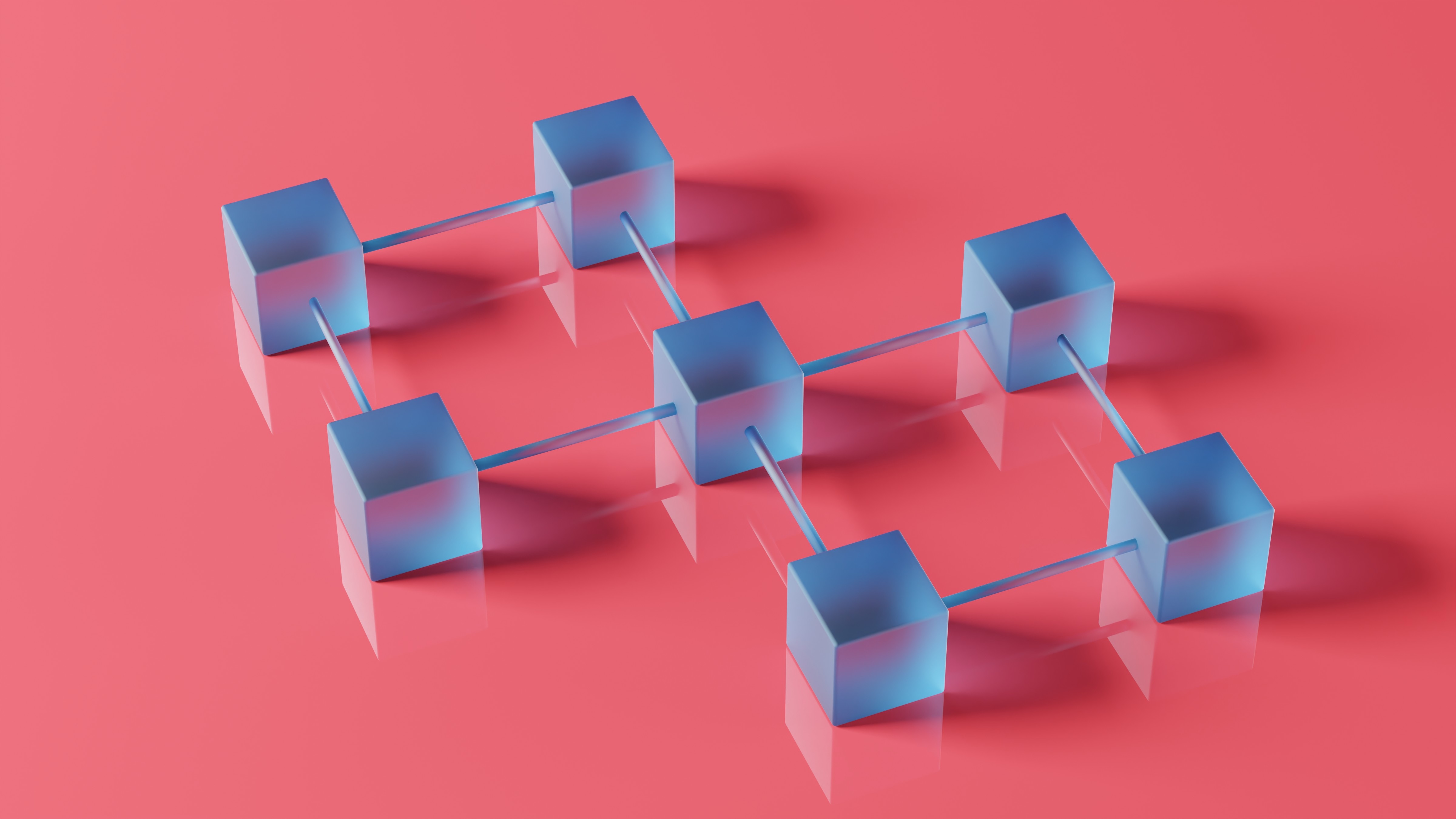Decentralized Autonomous Organizations
 Adedapo Ojo
Adedapo Ojo
As one of the features of blockchain technology, decentralization is quite evolutionary and holds great potential. This article will, in simple and understandable language, quickly explore what we mean by Blockchain technology, decentralization, and, more importantly, Decentralized Autonomous Organizations and the potential impacts of its successful application in contemporary governance.
First things first, what is decentralization? It is not rocket science. It is as simple as the dictionary provides, decentralization is the transfer of control of an activity or organization to several authorities rather than one single one. Yes, that is it. Now, in relation to Blockchain technology. Decentralization is a core feature of blockchain technology. Some might argue that the point of the blockchain is to remove autonomy from the hands of a single authority, data bank, or giant.
Blockchain technology is an advanced database mechanism that maintains transparent information sharing within a network. Blockchain is a shared, immutable ledger that facilitates the process of recording transactions and tracking assets in a business network. An asset can be tangible (a house, car, cash, land) or intangible (intellectual property, patents, copyrights, branding). Virtually anything of value can be tracked and traded on a blockchain network, reducing risk and cutting costs for all involved. A blockchain database stores data in blocks that are linked together in a chain. As part of its essence, blockchain decentralizes control.
Moving forward, A decentralized autonomous organization is an entity structure in which token holders participate in the management and decision-making of an entity. It is a form of legal structure that has no central governing body and whose members share a common goal of acting in the best interest of the entity. A DAO is a self-governing and decentralized entity that operates through smart contracts on a blockchain. It allows participants, often referred to as token holders, to collectively make decisions, allocate resources, and shape the direction of the organization based on predefined rules and protocols encoded in smart contracts. The point of DAOs is their ability to facilitate direct, consensus-based decision-making among participants, eliminating the need for intermediaries or centralized governance. The effect of the DAO is that information, alteration, and decision-making power are not centralized in the hands of a single giant or intermediary. Although quite an innovation, the application of DAO is still in its early stages. However, we will look into some key features of DAO and, later, some applicable uses of this rising structural innovation.
Features of DAO
1. Autonomy in Action:
Central to the DAO is inherent autonomy. This attribute is brought to life through smart contracts, which enforce pre-established rules and protocols. Such self-governance removes the need for intermediaries, guaranteeing decisions are executed devoid of external influence. This autonomous nature creates a foundation of reliability, ensuring a predictable environment for collaboration and decision-making.
2. Decentralized Governance:
A defining characteristic of DAOs is their commitment to decentralization. Governance responsibilities are diffused across a spectrum of participants, often referred to as token holders. This decentralization thwarts the emergence of any singular authority, preventing the concentration of power. DAOs exemplify inclusivity and equity by giving a diverse array of perspectives a voice.
4. Incentive Mechanisms:
DAOs commonly deploy token-based incentive systems to stimulate participation and contributions. Tokens representing ownership or stake within the organization are rewarded to participants. This mechanism aligns individual interests with the collective prosperity of the DAO. Active engagement translates into enhanced rewards, creating a synergistic relationship between individual contributions and communal achievements.
5. A Spectrum of Governance Models:
DAOs offer a spectrum of governance models, tailored to specific contexts and objectives. Token-based voting, a prevalent approach, permits participants to cast votes based on their token holdings. Quadratic voting introduces a quadratic correlation between votes and tokens to mitigate the influence of larger holders. Futarchy melds prediction markets and voting to optimize decisions. These models empower participants to exert influence according to their stake or reputation, advancing an adaptive governance ecosystem.
6. Decentralized Decision-Making in Action:
Perhaps the most captivating feature of DAOs is their capacity to facilitate decentralized decision-making. Participants collaborate to propose, deliberate, and cast votes on matters encompassing protocol enhancements to resource allocation. This collective approach empowers a heterogeneous community to channel their insights and expertise, fostering judicious and well-balanced outcomes.
7. The Canvas of Programmable Flexibility:
DAOs are constructed upon programmable smart contracts, endowing them with unparalleled flexibility. Smart contracts allow DAOs to encode intricate rules, automate processes, and swiftly adapt to shifting landscapes. This programmability imbues DAOs with the dexterity to evolve in response to emerging challenges and opportunities, guaranteeing sustained relevance and efficacy.
8. Trustlessness:
Trustlessness, a fundamental feature of blockchain, finds a powerful embodiment in DAOs. Smart contracts execute actions solely based on code and predefined criteria. This eradicates the necessity for participants to repose trust in each other or centralized authority, as interactions are steered by transparent and immutable code.
Applicable Uses of DAO
1. DeFi:
For Decentralized Finance (DeFi), DAOs play an instrumental role in molding protocol governance. It will afford token holders the ability to make proposals and partake in pivotal determinations, such as modifications to protocols and fee structures.
2. Collaborative Endeavors:
DAOs serve as instrumental catalysts in open-source software development, artistic collaborations, and community-driven ventures, where stakeholders collectively determine the project's direction and resource allocation.
3. Venture Capital:
DAOs usher in a new era of fund management and investment, permitting token holders to decide on investment opportunities and distribution strategies, thereby democratizing the venture capital landscape.
4. Democratic Civic Engagements:
Beyond the financial sector, governments and civic institutions can leverage DAOs for transparent and participatory decision-making processes in sectors like public budget allocation and policy formulation.
5. Identity Sovereignty:
The innovative potential of DAOs extends to decentralized identity solutions, enabling individuals to retain control over their personal data and digital identities through secure, blockchain-based systems.
The application of Decentralized Autonomous Organizations (DAOs) holds great potential, yet it is not devoid of challenges. As with any emerging technology, DAOs confront a range of obstacles that necessitate careful consideration for their successful implementation.
Here are some of the primary challenges facing the DAOs:
1. Legal and Regulatory Ambiguity:
The legal and regulatory environment surrounding DAOs is currently in flux. Determining the legal standing of a DAO, its participants, and the implications of its decisions can be intricate and vary across jurisdictions. Clarity on issues such as liability, taxation, and adherence to regulations is necessary for establishing a robust framework for DAOs.
2. Risk of Governance Centralization:
While the core principle of DAOs is decentralization, the risk is that governance could inadvertently become concentrated in the hands of a select few participants or entities with substantial token holdings. This has the potential to introduce power imbalances and undermine the democratic ideals that DAOs strive to uphold.
3. Ensuring Active Participation:
Cultivating active and meaningful engagement from a diverse spectrum of stakeholders presents a challenge. Overcoming voter disinterest and securing decisions made with comprehensive consensus necessitate inventive methods to motivate and involve participants effectively.
4. Security and Auditing of Smart Contracts:
The functionality of DAOs hinges on the reliability of their underlying smart contracts. Identifying and addressing vulnerabilities or flaws in these contracts is crucial, as any vulnerabilities could lead to severe consequences, including loss of assets or unauthorized access.
5. Scalability and Transaction Processing:
As the scale of participation and transaction volume within a DAO grows, scalability emerges as a concern. Limitations in transaction throughput and computational capabilities of blockchain networks can potentially result in congestion and increased transaction costs.
6. Token Distribution and Sybil Attacks:
Token-based voting, a fundamental element of many DAOs, can be susceptible to challenges related to the equitable distribution of tokens and the possibility of Sybil attacks. Such attacks involve an entity creating multiple identities to exert disproportionate influence.
7. Resolving Disputes:
DAOs may lack established mechanisms for effectively addressing disputes or conflicts among participants. The absence of a central authority to mediate conflicts can hinder consensus-building and the quest for equitable solutions.
8. Enhancing the User Experience:
Interacting with DAOs and engaging in governance processes often requires technical proficiency, potentially limiting broader adoption. Improving user interfaces and simplifying interactions are crucial steps toward making DAOs more accessible and user-friendly.
9. Environmental Considerations:
Depending on the blockchain network employed, the environmental impact and energy consumption associated with DAO operations can vary significantly. Prioritizing sustainability and minimizing the carbon footprint of DAO activities is vital to ensuring responsible and eco-friendly practices.
Decentralized Autonomous Organizations are a utility of the future and have the potential to change the way governance is constituted. It has long been a subject of critical thought for intelligent beings to develop contemporary and better ways of governance while improving on the failures of current systems. This is the hallmark of the development of Decentralized Autonomous Organization which is to develop on the failures of the current systems of government through a transition from centralised modes of authority to a decentralized flow of decison-making power.
Subscribe to my newsletter
Read articles from Adedapo Ojo directly inside your inbox. Subscribe to the newsletter, and don't miss out.
Written by

Adedapo Ojo
Adedapo Ojo
I am a web3 and artificial intelligence technical writer. I write technical blog posts, user guides and manuals, API documentations and white papers. Follow me and let us explore this world of constant learning and innovation.